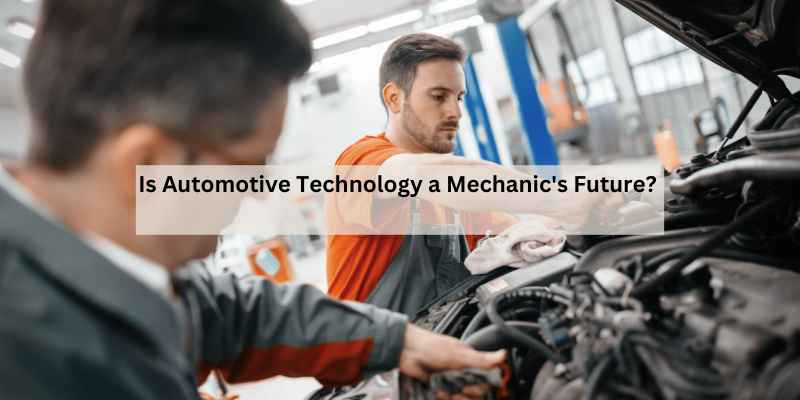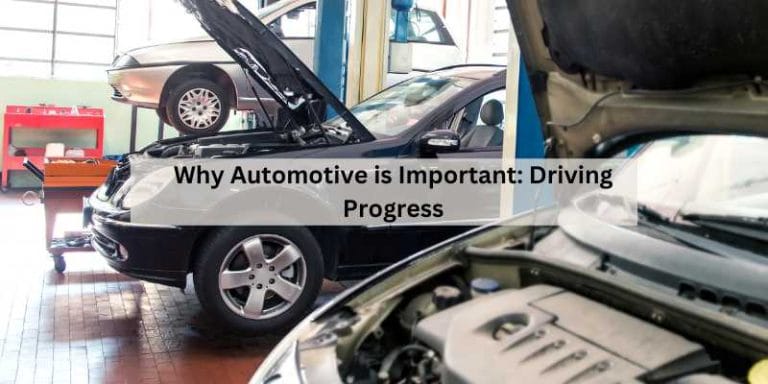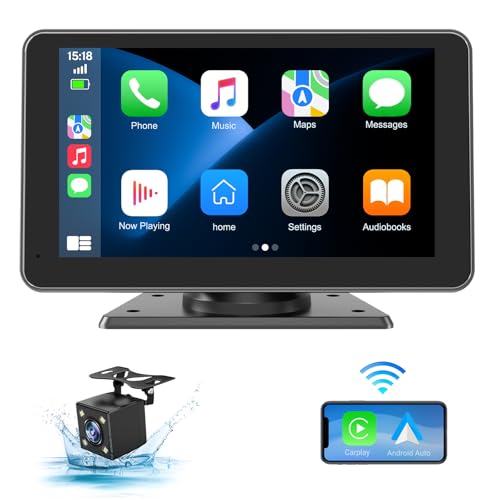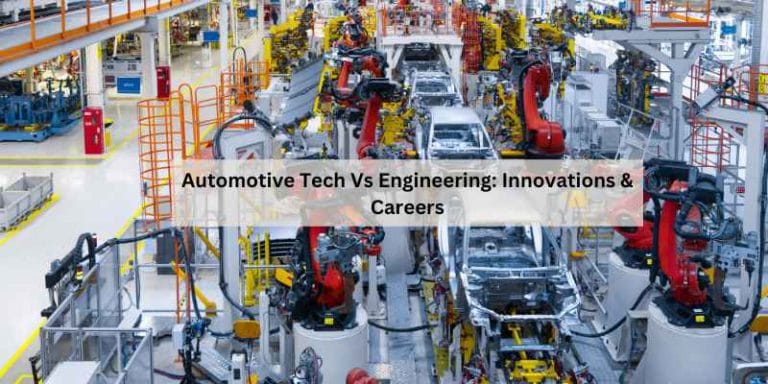Is Automotive Technology a Mechanic’s Future?
Automotive technology is closely related to mechanics, as it involves the study and application of vehicle technology, repairs, and maintenance. This field encompasses various aspects such as engine systems, engineering, computer technology, and other mechanical components.
It also focuses on the movement and functioning of self-propelled vehicles. Many skilled trades positions in the automotive industry can be considered STEM jobs, highlighting the technological advancements in this field. While some may differentiate between auto technicians and mechanics, the general perception is that technicians focus more on electrical aspects, while mechanics primarily engage in hands-on work and routine services.
Pursuing a career in automotive technology can lead to opportunities in the automotive industry and outdoor powered equipment.
The Evolution Of Automotive Technology
Automotive technology has evolved significantly over the years, transforming from traditional wrenches to advanced widgets. This evolution has had a profound impact on vehicle maintenance, with a shift towards more sophisticated engineering and computer technology. Automotive technology encompasses the study of self-propelled vehicle movement, as well as the creation, design, and remediation of vehicle technology and systems. Skilled professionals in this field, such as automotive service technicians, diagnose and repair a wide range of vehicle components, from engines and transmissions to brakes and axles. As the automotive industry continues to advance, the distinction between technicians and mechanics becomes increasingly pronounced, with technicians focusing on the electrical aspects and mechanics handling more hands-on tasks and routine services.
Mechanics Vs. Technicians
When it comes to the automotive industry, there is often a debate about the roles of mechanics and technicians. Both play essential roles in the modern garage, but they possess different skill sets and areas of expertise. Mechanics are skilled in hands-on work and are typically involved in routine services such as oil changes and brake-pad replacements. On the other hand, technicians focus more on the electrical aspects of vehicles and are adept at diagnosing and repairing complex vehicle systems. Bridging the knowledge gap between these two roles is crucial for a well-rounded understanding of automotive technology. As the industry continues to evolve, it’s important for both mechanics and technicians to stay updated with the latest advancements in automotive technology.
Emerging Tech In The Auto Industry
Automotive technology is revolutionizing the auto industry, but is it replacing mechanics? With the rise of self-diagnosing vehicles and advanced automated systems, the role of mechanics is evolving to incorporate high-tech skills in computer diagnostics and electrical systems, alongside traditional mechanical expertise.
| Emerging Tech in the Auto Industry |
| Electric and Autonomous Vehicles |
| The introduction of electric and autonomous vehicles in the auto industry has revolutionized the way we think about transportation. Electric vehicles are powered by electricity, making them more environmentally friendly and cost-effective. Autonomous vehicles are self-driving and have the potential to increase safety on the roads. These emerging technologies require specialized skills and knowledge to maintain and repair. |
| Connectivity and Diagnostics Tools |
| Another area of emerging tech in the auto industry is connectivity and diagnostics tools. Vehicles are increasingly equipped with technology that allows them to communicate with other devices, such as smartphones and GPS systems. This connectivity also allows for remote diagnostic testing and updates. As vehicles become more complex, the need for skilled technicians who can navigate these systems will continue to grow. |
The Educational Path For Modern Mechanics
Automotive technology has become essential for modern mechanics, requiring a comprehensive educational path. Starting with trade school, aspiring mechanics learn the fundamentals of vehicle systems and repair techniques. Beyond initial training, continuous learning and certification are crucial to staying updated with the latest advancements in automotive technology. This ensures that mechanics can effectively diagnose and repair modern vehicles, which increasingly rely on complex computer technology. Embracing ongoing education and obtaining relevant certifications is vital for sustaining a successful career in the automotive industry.
The Role Of Computer Technology
Automotive technology has evolved to encompass more than just mechanical repairs. With the integration of computer technology, mechanics now rely on advanced diagnostic tools and software to troubleshoot and repair modern vehicles. This shift highlights the crucial role of computer technology in the automotive industry, transforming traditional mechanics into technologically adept professionals.
| Automotive technology is not just limited to the traditional hands-on mechanical work of a mechanic. Nowadays, computer technology plays a crucial role in the automotive industry. Onboard diagnostics and repair software have become an integral part of a mechanic’s toolkit. With the help of these tools, mechanics can diagnose and repair complex issues that were previously impossible to detect. The use of computer technology has also increased the accuracy and efficiency of repairs, reducing the time and costs involved. Therefore, it is safe to say that automotive technology and computer technology go hand in hand in the modern age. |
Specialization In Auto Repair
|
Automotive technology is not the same as being a mechanic, but it is a specialization within the field of auto repair. As technology continues to advance, there is a growing need for professionals who specialize in the repair and maintenance of hybrid and electric vehicles. This requires expertise in areas such as battery technology, electric motors, and computer systems. Auto repair professionals who focus on hybrids and EVs will be in high demand in the future. While a mechanic may primarily work on traditional gasoline-powered vehicles, an automotive technology specialist has a broader knowledge base that includes advanced computer systems and other technologies. This specialization can lead to higher-paying jobs and more opportunities for career advancement. As the auto industry continues to evolve, it is important for professionals in the field to stay up-to-date on the latest technology and developments. |
Challenges And Opportunities
Automotive technology presents both challenges and opportunities for mechanics in the industry. With advancements in computer technology and complex vehicle systems, mechanics must stay up-to-date with the latest training and skills. However, these advancements also offer new career paths and job opportunities for skilled technicians in the automotive field.
| Challenges and Opportunities | Adapting to New Technologies |
| The automotive industry faces challenges and opportunities due to rapid technological advancements. | Adapting to new technologies is crucial for the survival and success of mechanics in this field. |
| As vehicles become more complex, mechanics must acquire advanced skills to diagnose and repair modern automotive systems. | Understanding and working with hybrid and electric vehicles present new avenues for growth in the industry. |
| The integration of digital diagnostics and computerized systems demands continuous learning and upskilling. | Embracing these changes can lead to enhanced job prospects and higher earning potential for mechanics. |
| Moreover, the shift towards sustainable and environmentally-friendly automotive technologies creates new service opportunities. | Specializing in green automotive solutions can position mechanics at the forefront of a growing market. |
The Future Job Market For Mechanics
Automotive technology is a mechanic’s future in the job market. With the advancement of self-propelled vehicles and the need for repairs and maintenance, mechanics who specialize in automotive technology will be in high demand. This field combines engineering, computer technology, and mechanics to ensure the smooth operation of vehicles.
| The Future Job Market for Mechanics |
| Demand for Tech-Savvy Professionals |
| The automotive industry is constantly evolving, and with the introduction of new technologies, the job market for mechanics is changing. While traditional mechanical skills will always be important, there is an increasing demand for tech-savvy professionals who can work with the complex computer systems in modern cars. As more vehicles become connected and autonomous, mechanics will need to be able to diagnose and repair software-related issues alongside traditional mechanical problems. This means that future mechanics will require a combination of strong technical skills and an understanding of how software and electronics work. To succeed in this changing landscape, aspiring mechanics should consider pursuing training in automotive technology and computer systems, as well as staying up-to-date on the latest advancements in the field. |
Frequently Asked Questions
What Does Automotive Technology Do?
Automotive technology involves the study of vehicle technology and the design, repair, and maintenance of self-propelled vehicles. It encompasses various aspects such as engine systems, mechanics, engineering, and computer technology. Automotive technicians use their expertise to diagnose and fix issues in cars and light trucks, while mechanics focus on hands-on work and routine services.
This field offers a range of career opportunities and is considered part of the STEM industry.
Is Automotive Technology A Stem Major?
Automotive technology is not a STEM major. While it falls under the skilled trades category, STEM majors typically refer to fields related to science, technology, engineering, and mathematics. Automotive technology focuses on the study and application of vehicle technology, repairs, and maintenance.
Are Mechanics Part Of The Automotive Industry?
Yes, mechanics are an integral part of the automotive industry. They play a crucial role in diagnosing and repairing vehicle systems, including engines, transmissions, brakes, and more. They work alongside technicians and other professionals in the industry to ensure the proper functioning and maintenance of vehicles.
What Is A Technician Auto Mechanic?
A technician auto mechanic is an individual who performs maintenance, diagnoses problems, and repairs vehicle systems in cars and light trucks. They are skilled in various areas including engines, transmissions, brakes, and more. Technicians use their expertise to ensure the proper functioning of vehicles.
Conclusion
Automotive technology plays a vital role in the automotive industry. It encompasses the study of self-propelled vehicles and involves the design, repair, and maintenance of vehicle technology. Automotive technicians and mechanics are skilled professionals who diagnose and repair various vehicle systems.
While there may be some overlap between the roles of technicians and mechanics, technicians often focus more on electrical aspects, while mechanics specialize in hands-on work. Pursuing a career in automotive technology offers promising job prospects and opportunities for growth in this ever-evolving industry.







